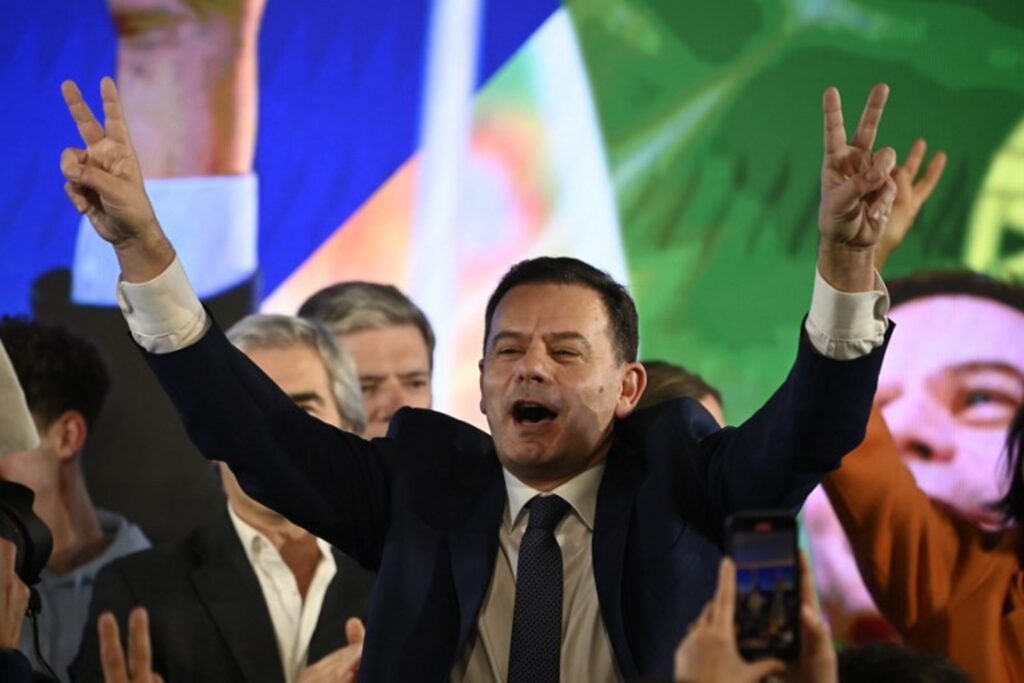In Sunday's general election in Portugal, the centre-right won a very narrow victory over the Socialists, who have lost power for the first time in eight years.
Three months before the European elections, these elections were precipitated by the resignation of outgoing Prime Minister Antonio Costa, who was not seeking a new mandate. The results confirm that the far-right is on the rise across Europe, as Italian and Dutch voters have already evidenced.
Portugal was one of the few countries in Europe to be governed by the left when Costa, 62, resigned after being named in an investigation into influence peddling at the beginning of November – with the leader maintaining his innocence but feeling he could not lead the country while under investigation.
With only the four overseas constituency seats still to be filled, the centre-right Democratic Alliance (AD), led by 51-year-old Luis Montenegro, won 29.49% of the vote and 79 of the 230 MPs.
The Socialist Party (PS), who won an absolute majority in 2022 with 41.4%, are now in second place with 28.66% of the vote and 77 seats.
This result means that the winner will not be able to form an absolute majority of at least 116 elected members on its own, or even in coalition with a small liberal party that came in fourth with 5% of the vote and eight seats.
Montenegro nevertheless claimed an "unassailable" victory in Sunday's legislative elections, saying he wanted to govern with a "relative majority" in parliament and reaffirming his refusal to run the country with the support of the far right.
5o years since Carnation Revolution
The populist Chega (Enough) party, led by 41-year-old André Ventura, more than doubled its score, winning 18% of the vote, compared with 7.2% in the previous parliamentary elections in January 2022.
In terms of seats, the anti-system formation founded in 2019 quadrupled its representation from 12 to 48 MPs, reinforcing its position as the country's third political force, at the end of a ballot also marked by a sharp rise in turnout.
"Chega asked to become the centrepiece of the political system and has achieved this objective", Ventura congratulated himself after hailing "an absolutely historic result" and saying he was "available" to "give Portugal a stable government" within "a strong right-wing majority".
This latest breakthrough for the far-right comes as Portugal next month commemorates the 50th anniversary of the Carnation Revolution, which put an end to the fascist dictatorship and 13 years of colonial wars.
In his meteoric rise to prominence, this law professor and devout Catholic, who became known as a polemicist on television football programmes, was carried by a discourse against corruption, immigration and minorities.
In addition to the suspicions that led to Antonio Costa's resignation, Ventura also insisted during the campaign on the increase in immigration to Portugal, which has seen its foreign population double in the space of five years.
After Costa's departure, the PS regrouped around Pedro Nuno Santos, a 46-year-old former minister from its left wing.
"Despite the minimal difference between us and the AD, (...) we did not win the elections and we will go into opposition," he admitted.
More ambiguously, he indicated that his party would not stand in the way of the formation of a centre-right minority government, but left open the threat of voting against its next budget.
Despite the consolidation of public finances, growth above the European average and unemployment at an all-time low, the record of the outgoing Socialist government has been tarnished by inflation, malfunctions in hospitals and schools, and a major housing crisis.
During the campaign, centre-right opposition leader Luis Montenegro promised to cut taxes in order to boost growth, while saying he wanted to improve public services.

